第10章
It is a dreadful thing to hate one's own father; to hate him and be unable to forgive him even though he is dead, although he paid for his sin with his life.Death is said to pay all debts, but there are some it cannot pay.To my father I owed my present ambitionless, idle, good-for-nothing life, my mother's illness, years of disgrace, the loss of a name--everything.
Paine was my mother's maiden name; she was christened Comfort Paine.My own Christian name is Roscoe and my middle name is Paine.My other name, the name I was born with, the name that Mother took when she married, we dropped when the disgrace came upon us.It was honored and respected once; now when it was repeated people coupled it with shame and crime and dishonor and broken trust.
As a boy I remember myself as a spoiled youngster who took the luxuries of this world for granted.I attended an expensive and select private school, idled my way through that somehow, and entered college, a happy-go-lucky young fellow with money in my pocket.For two-thirds of my Freshman year--which was all Iexperienced of University life--I enjoyed myself as much as possible, and studied as little.Then came the telegram.Iremember the looks of the messenger who brought it, the cap he wore, and the grin on his young Irish face when the fellow sitting next me at the battered black oak table in the back room of Kelly's asked him to have a beer.I remember the song we were singing, the crowd of us, how it began again and then stopped short when the others saw the look on my face.The telegram contained but four words: "Come home at once." It was signed with the name of my father's lawyer.
I presume I shall never forget even the smallest incident of that night journey in the train and the home-coming.The lawyer's meeting me at the station in the early morning; his taking care that I should not see the newspapers, and his breaking the news to me.Not of the illness or death which I had feared and dreaded, but of something worse--disgrace.My father was an embezzler, a thief.He had absconded, had run away, like the coward he was, taking with him what was left of his stealings.The banking house of which he had been the head was insolvent.The police were on his track.And, worse and most disgraceful of all, he had not fled alone.There was a woman with him, a woman whose escapades had furnished the papers with sensations for years.
I had never been well acquainted with my father.We had never been friends and companions, like other fathers and sons I knew.Iremember him as a harsh, red-faced man, whom, as a boy, I avoided as much as possible.As I grew older I never went to him for advice; he was to me a sort of walking pocket-book, and not much else.Mother has often told me that she remembers him as something quite different, and I suppose it must be true, otherwise she would not have married him; but to me he was a source of supply coupled with a bad temper, that was all.That I was not utterly impossible, that, going my own gait as I did, I was not a complete young blackguard, I know now was due entirely to Mother.She and I were as close friends as I would permit her to be.Father had neglected us for years, though how much he had neglected and ill-treated her I did not know until she told me, afterward.She was in delicate health even then, but, when the blow fell, it was she and not I who bore up bravely and it was her pluck and nerve, not mine, which pulled us through that dreadful time.
And it was dreadful.The stories and pictures in the papers! The rumors, always contradicted, that the embezzler had been caught!
The misrepresentation and lies and scandal! The loss of those whom we had supposed were friends! Mother bore them all, wore a calm, brave face in public, and only when alone with me gave way, and then but at rare intervals.She clung to me as her only comfort and hope.I was sullen and wrathful and resentful, an unlicked cub, I suspect, whose complaints were selfish ones concerning the giving up of my college life and its pleasures, and the sacrifice of social position and wealth.
Mother had--or so we thought at the time--a sum in her own name which would enable us to live; although not as we had lived by a great deal.We took an apartment in an unfashionable quarter of the city, and thanks to the lawyer--who proved himself a real and true friend--I was given a minor position in a small bank.Oddly enough, considering my former life, I liked the work, it interested me, and during the next few years I was made, by successive promotions, bookkeeper, teller, and, at last, assistant cashier.
No news came from the absconder.The police had lost track of him, and it seemed probable that he would never be heard of again.But over Mother and myself hung always the dread that he might be found and all the dreadful business revived once more.Mother never mentioned it, nor did I, but the dread was there.
Then came the first breakdown in Mother's health which necessitated her removal to the country.Luther and Dorinda Rogers were distant relatives of our friend, the lawyer.They owned the little house by the shore at Denboro and the lawyer had visited them occasionally on shooting and fishing trips.They were in need of money, for, as Dorinda said: "We've got two mouths in this family and only one pair of hands.One of the mouths is so big that the hands can't fill it, let alone the mouth that belongs to THEM." Mother--as Mrs.